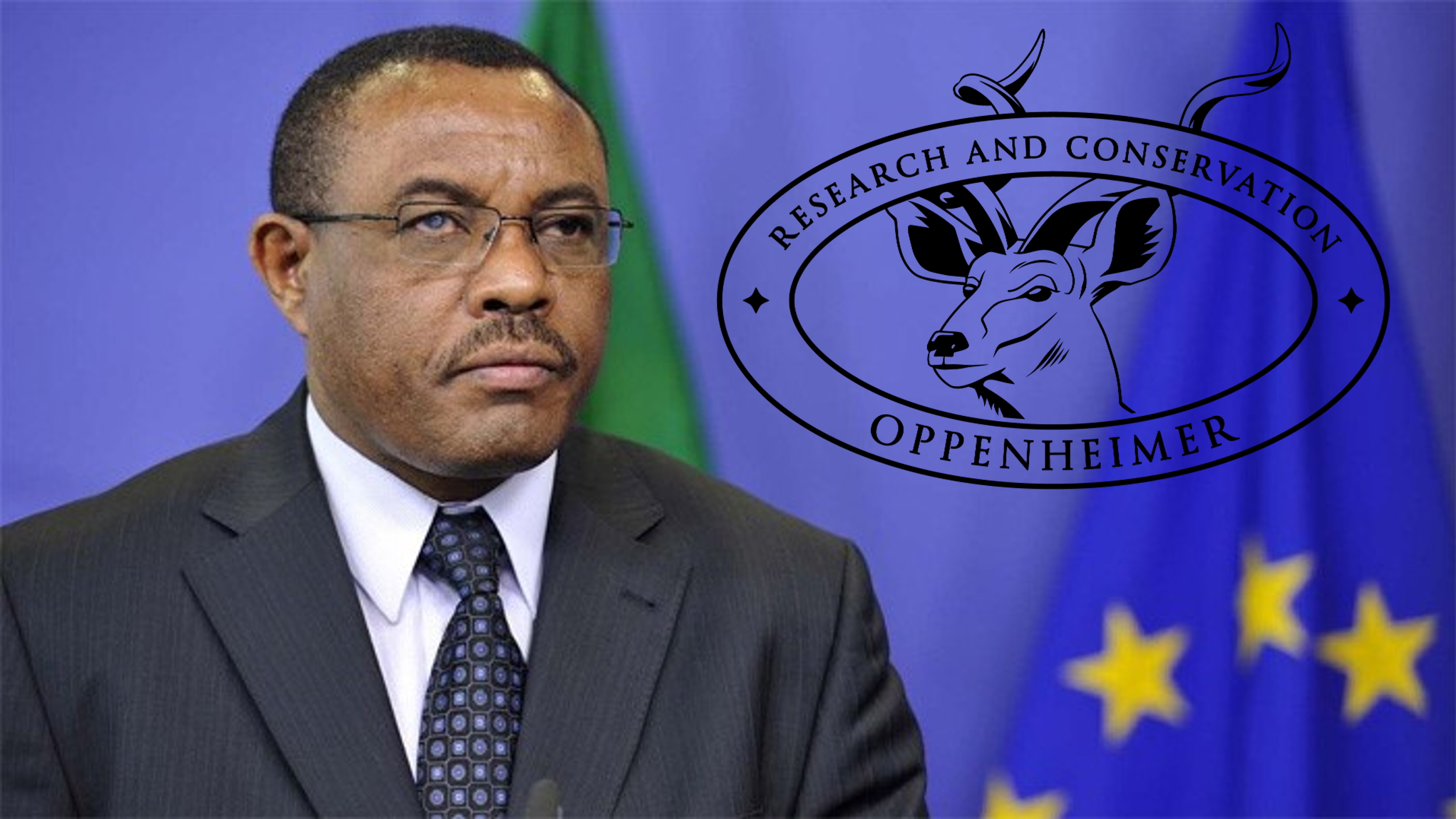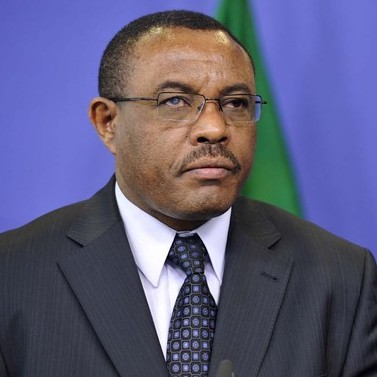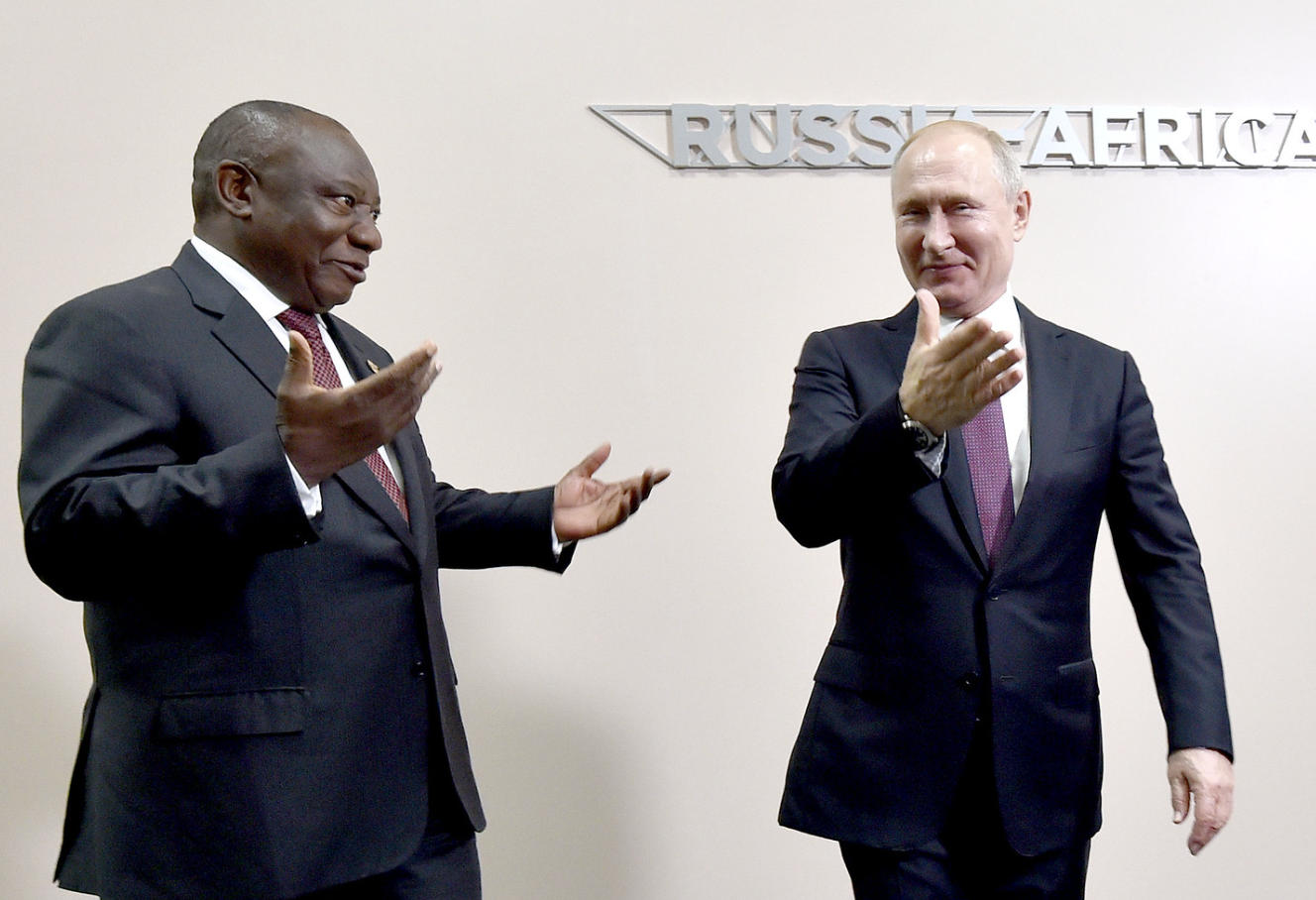News
Science Without Boundaries and Radical Collaboration: The Key to Averting Climate Catastrophe and Making Peace with Nature
This the opening address made by former Ethiopian Prime Minister, Hailemariam Desalegn to the 13th Oppenheimer Research Conference on 9 October 2024.

Today, we are gathered at a critical juncture in human history. The clock is ticking, and the consequences of our actions—or inaction—are more evident than ever. Climate change and nature loss threaten not only our environment but also our social structures, economies, and very way of life. To confront this crisis, we must embrace two fundamental principles: radical collaboration and science without boundaries. This - I believe - is the only way to avert a catastrophe and forge peace with nature.
And whilst I do not doubt our ability as human beings to rise to this challenge, let us be under no illusion - this is the greatest existential threat we will collectively face and the scale of the challenge in front of us cannot be underestimated.
In their Sixth Impact Assessment Report, the IPCC clearly stated that widespread and rapid changes in the atmosphere, ocean, cryosphere, and biosphere have without doubt occurred. I know this will come as no surprise to delegates in this room who have seen first-hand that human-caused climate change is already driving weather and climate extremes across the globe.
The continued increase in surface temperatures has led to widespread devastation and damage to both nature and people the likes of which may have seemed unfathomable, were they not happening before our very eyes. And it is vulnerable communities - many of whom are here in Africa and who have historically contributed the least to current climate change - that continue to be disproportionately affected.
At home in Ethiopia, the 2024 El Nino season - exacerbated by climate change - has brought both drought and extreme flooding - leaving us under no illusion that this is a humanitarian catastrophe as much as it is an environmental one - as a result of this weather pattern it is projected that over the course of 2024, almost 1 million children will have suffered from acute malnutrition and around 350,000 pregnant and lactating women will be malnourished.
Of course, it is not just my home feeling the effects, similarly, drastic weather events are repeating themselves up and down the continent. I know for many in this room memories of the 2022 floods in Kwa Zulu-Natal will be fresh in your minds. Indeed, I was here in Pretoria meeting with your President, His Excellency Cyril Ramaphosa, to discuss the biodiversity loss crisis when tragic events unfolded.
Accompanied by fellow former Heads of State and Members of the Campaign for Nature - His Excellency Ernest Bai Koroma, and His Excellency Dr Ruhakana Rugunda we shared with the President our grave concerns, all of which remain pertinent today, all of which he was passionate about tackling.
Concerns that in Africa alone, the IUCN estimates 6,400 animals and 3,100 plants are at risk of extinction and that since 1970, the population of vertebrate species in Africa is estimated to have declined by 39%. Concerns that some 20% of Africa’s land surface is estimated to be degraded due to soil erosion, salinization, pollution, and loss of vegetation. Concern that the Congo Basin - one of the world's lungs - is losing an estimated 500,000 to 1.2 million hectares of tropical forest every year - resulting in a 30% decline in tree cover across large stretches of the African tropics. And concern that our Blue Economy - once projected to grow to $405 billion by 2030 - is now contracting by an estimated 30% due to mass coral bleaching because of climate change-driven ocean acidification, plastics pollution, and poleward marine life migration.
As this somewhat grim picture I have painted shows - the effects of climate change and nature loss know no borders. They are global phenomena, spanning countries and continents, and therefore, our solutions must transcend national interests and political divides. The future of our planet hinges on our ability to radically collaborate across borders, disciplines, and sectors. I believe President Ramaphosa understood this deeply, and I have admired how South Africa has led action in recent years, including by being a strong voice in environmental and climate negotiations.
At one such negotiation in December 2022, we moved one step closer to the radical collaboration required to tackle these issues through the historic adoption of the Kunming-Montreal Global Biodiversity Framework. For many, it brought a renewed sense of optimism. The flagship “30×30” target was perhaps one of the most encouraging, with 196 parties agreeing to effectively conserve and manage at least 30% of the world’s land and ocean by 2030 – a goal which, if achieved, would have significant implications for climate action as well as nature conservation.
In that same year governments finally agreed to a Loss and Damage Fund at the Climate COP - a relief to many of us in the Global South who have felt the immense pressure of protecting the world's most precious ecosystems, whilst trying to grow economies sustainably, feed our people, educate our children and end insecurity all against the backdrop of climate-induced catastrophes.
But words are one thing, and actions quite another. And to truly meet the challenge I have outlined lip service will not cut it. And this is where you - our most experienced scientists, our most passionate philanthropists, and our most engaged activists come in.
There will be no 30x30, just as there will be no keeping the 1.5 alive without science. The scientific world can provide us with some of the fundamental information that is needed to progress and implement the ambitious goals agreed to. Luckily science has historically risen to the challenge, thriving on curiosity, collaboration, and an open exchange of ideas, breakthroughs in technology and understanding have emerged when scientists have shared knowledge without limitations.
From climate modelling to renewable energy innovation, the greatest advancements are born from global cooperation. This collaborative spirit is at the heart of Oppenheimer Generations Research and Conservation, and it must be our guiding principle as we continue to tackle climate change and nature loss head-on.
Imagine a world where scientists from different countries work together seamlessly, sharing data and resources to develop cutting-edge nature-based solutions. Admittedly it doesn’t seem so far away looking around this room…But we must take the spirit of this conference and pay it forward to COPs and UN Meetings, Research Stations and laboratories, Government Convenings, and business boardrooms. We need to foster international partnerships that prioritize scientific research and innovation. The technologies and strategies that can mitigate climate change—renewable energy, carbon capture, sustainable agriculture—require collective effort and shared wisdom.
The successes of the past, such as the Paris Agreement and the Kunming Montreal Global Biodiversity Framework, demonstrate that when we unite our efforts, we can achieve remarkable progress. However, the urgency of our situation demands even more robust collaboration. We must break down the barriers that hinder the free flow of information and expertise. Open-access journals, international research grants, and cross-border academic partnerships are essential tools to ensure that knowledge is accessible to all.
Crucially, science without boundaries also means engaging communities in the conversation. The most effective climate and nature loss solutions are those that consider local knowledge and cultural contexts. We must empower citizens to take part in scientific inquiry and action. Prioritise funding community-driven projects that harness local insights, create resilience and inspire grassroots movements.
We need to listen to indigenous peoples and local communities, whose relationship with nature teaches us invaluable lessons about sustainability and stewardship. We need to amplify their voices in our scientific discourse and integrate traditional knowledge with modern science. In doing so we can develop holistic solutions that respect both our environment and the cultures that inhabit it.
Now I am under no illusion that all of this comes with a price, the biodiversity funding gap alone is estimated to be $700bn a figure that the K-M GBF agreed to close by reducing subsidies harmful to nature by $500 billion per year and by increasing financial resources from all sources to $200 billion per year, including ensuring that international financing from developed to developing countries increases to at least $20 billion per year by 2025 and at least $30 billion per year by 2030.
But crucially this $20 billion a year in international nature financing, along with the $100bn a year committed for climate, does not constitute charity but is rather a shift toward an equitable future where the abundant resources of the Global South are valued and paid for, and the Global South is recognized for stewarding and protecting the biological resources and ecosystem services, we all, as a global community, depend on.
It should be the case that significant portions of this funding are directed towards much-needed research focused on finding equitable and effective ways to deliver on global goals such as the 30x30.
This international financing must be seen as an investment - not a cost - one that will create high economic returns and avoid massively accelerating future costs associated with the global, existential threat of climate change and nature loss. Fundamentally, if we want to maintain a liveable planet, urgent investment is needed now to conserve intact ecosystems mainly in the developing world.
Now as I mentioned, words are one thing, and actions quite another - and I have read many words today so let me reassure you all that I am deeply passionate about and committed to doing my part through the Hailemariam and Roman Foundation.

The Climate-Smart Conservation and Ecotourism Program (CSCET) of the Hailemariam and Roman Foundation is a flagship initiative designed to combat biodiversity loss through climate-smart conservation strategies. This program emphasizes the inclusion and empowerment of marginalized communities and resource custodians around selected national parks in Ethiopia. Key components of the program include community-based biodiversity conservation, the restoration of degraded ecosystems through sustainable land management practices, and the development of alternative livelihoods for local communities, with ecotourism as a central focus. Currently, HRF is implementing significant projects that not only benefit local communities but also promote climate-sensitive conservation of biodiversity.
One notable example of these projects is AFD (Agence Française de Développement) - funded five-year conservation and community livelihood initiative in Maze National Park, which faces substantial climatic and anthropogenic pressures. Our conservation efforts also extend to influencing policies that favour both biodiversity conservation and the rights of conservation, fostering collaboration through a multi-stakeholder approach, and promoting community-based conservation by establishing community conservation areas.
With this approach I’m pleased to say that we successfully facilitated the official designation of the Tama Community Conservation Area (TCCA), covering 2,000 square kilometres. This is the first community conservation area of its kind in Ethiopia and serves as a vital ecological corridor between the Omo and Mago National Parks. Having overseen the legal transfer of the CCA to the pastoral community council, we are now closely working with them to support initiatives in conservation, tourism, and development.
Building on our recent successes, we are working with our key partners who have been funding our projects to scale up best practices and enhance collaboration among government entities, NGOs, the private sector, and local communities and their institutions.
I am sure over the coming days both myself and HRF’s Chief of Conservation and Ecotourism Dr. Alemayehu Assefa Assele will have many fruitful conversations with delegates about how we can build on these successes and share what we have learned.
Now, before I finish, and we get to the good stuff - Jonathan I am particularly looking forward to your thoughts on the ‘Business of Conservation’ - let me leave you all with this parting thought.
There is an Ethiopian proverb that says ‘The one who is mistaken is the one who does nothing’ - for too long the world stood by and did nothing and we are now in the 11th hour.
Our planet's future depends on our willingness to work together, to transcend boundaries, and to put our shared humanity first. Together, we can create a world where innovation flourishes, where knowledge flows freely, and where humanity learns to coexist with nature rather than exploit it.
So let us unite in our quest for solutions. Together, we can avert further climate catastrophe, together we can make peace with nature, Together, we can make a lasting impact for generations to come.
Hailemariam Desalegn is the former Prime Minister of Ethiopia and a member of The Brenthurst Foundation Advisory Board.
The Oppenheimer Research Conference was initiated in 2010 and has grown into an important, significant event on the global academic calendar. It showcases research from various environmental and natural science fields. One of its great successes is this conference’s diversity. Usually, one attends a conference focused on single specialisations such as ornithology, entomology or archaeology, however, it all happens here, creating an opportunity for scientists to mix with other scientists from various fields


